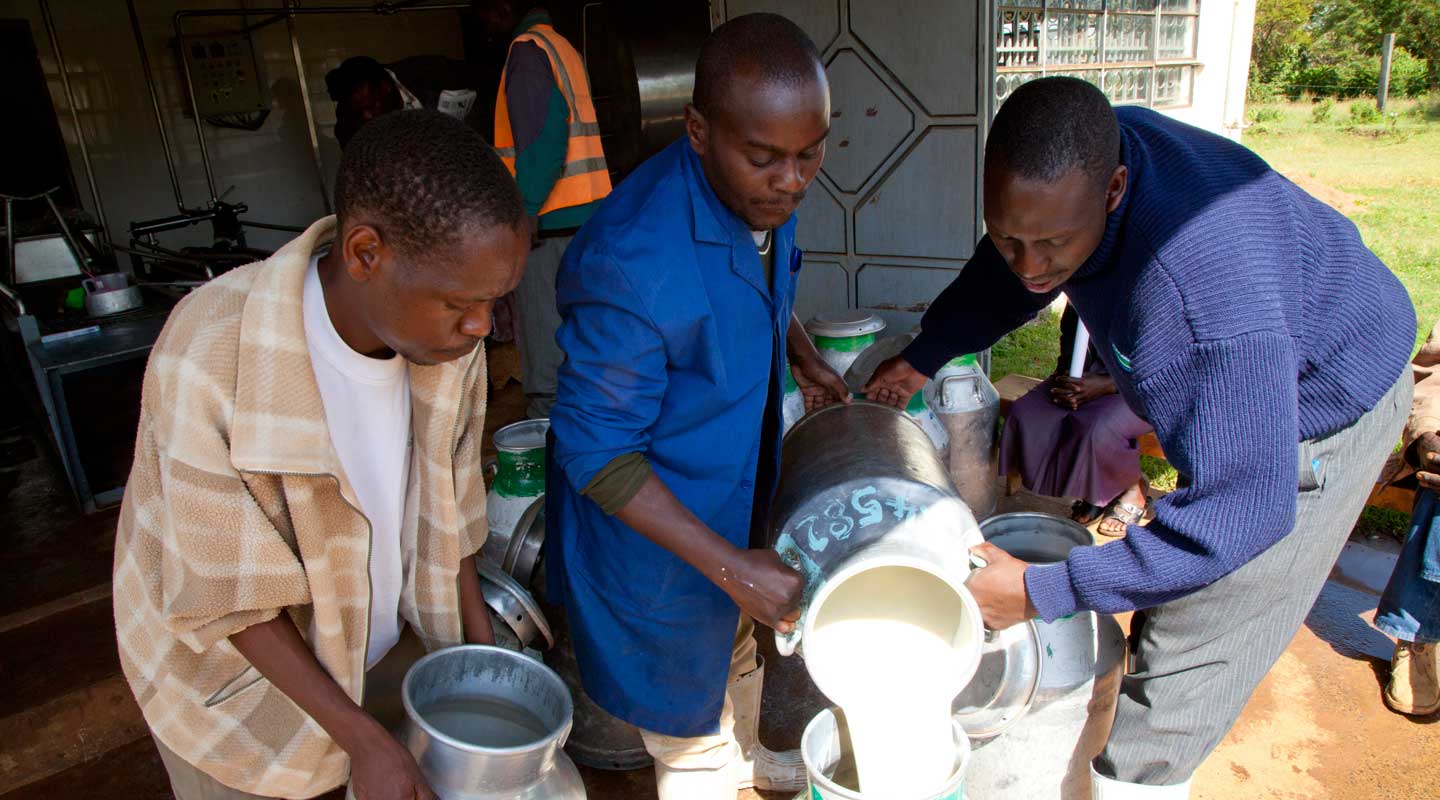Taking stock of the dairy business with the Wazo Jema Youth Group
IFAD Asset Request Portlet
Asset Publisher
Taking stock of the dairy business with the Wazo Jema Youth Group
Estimated reading time: 3 minutes
Our East and Southern Africa series is dedicated to the achievements of five youth-led agribusinesses in the Nakuru and Kilifi counties of Kenya. Each of them has had remarkable success, and each of them has taught us something valuable about rural development that we can bring forward to other projects. All of the groups in this series are supported by Vijabiz, an IFAD-funded project dedicated to empowering young people through mentorship and agribusiness entrepreneurship.
The Wazo Jema Youth Group, based in Kenya’s Kilifi County, is a group of four young women and six young men who came together to start their own business after struggling to find work in their community. After getting their start with poultry farming, they soon switched to the dairy business: buying up raw milk from farmers and pasteurizing it. They process the pasteurized milk into a variety of different products – yogurts, blended juices, and ghee, among others – for sale.
Some time after getting their start, they heard about Vijabiz, a programme offering mentorship and entrepreneurship training to Kenyan youth-led start-ups, through a local advertisement. Vijabiz offers classes in business skills – everything from bookkeeping to social media marketing – to groups who apply. Qualifying groups are also awarded grants that can be invested back into the business. Although Wazo Jema didn’t qualify for the financial support, they enrolled in all the classes they could take.
Soon, the group saw significant improvements in their business. Thanks to the social media training, they are now advertising and selling their products via WhatsApp and Facebook. With a much larger customer base available to them, the income potential of their business has greatly increased. And, armed with the skills to closely track their sales, they’re able to pinpoint when they’re running at a loss and recognize when they’re turning a profit.
They’re not quite out of the woods yet. They still pasteurize their milk according to the local custom: over a fire. In addition to not being climate-friendly, this method makes it difficult to determine whether the milk has reached the appropriate boiling temperature. The pandemic has weighed heavy on their business, too. Pre-COVID, they sold about 60–70 litres of milk a day, but more recently, they’re averaging 15–20 litres a day – a 71 per cent drop in sales.
Nevertheless, the business is still a reliable source of income for the members of Wazo Jema and their families, and the jobs they’ve created have helped to chip away at the high unemployment rates in Kilifi County.
Lessons learned
Even as we celebrate Wazo Jema’s progress, we should take stock of the difficulties they have encountered, as they have shed some light on ways that future initiatives can be improved.
First, we should consider the availability of equipment. The lack of proper equipment can, of course, severely restrict the income potential of any business, and Wazo Jema is no different in this regard. A modern milk pasteurizer would be more than just a wise investment – it would bring a guaranteed income boost. New equipment could also spell the solution to their post-COVID sales slump. A milk ATM, for example, would provide a safe, contactless method for carrying out transactions – and as other Vijabiz groups can attest, they're popular with customers, too.
A second, closely related, point is the question of funding. Historically, only some Vijabiz groups have qualified for funding in addition to the training courses. Although many groups have met with success after the trainings alone, others, like Wazo Jema, have continued to face challenges. These latter groups would likely benefit from receiving funding after the training period ends to help them apply what they learned. In the future, these programmes may consider pairing all trainings with grants to ensure all participants will be financially empowered.
In many respects, this situation parallels the gap in support faced by many other businesses across the continent. Most African economies are dependent on start-ups and other small and medium-sized enterprises, yet access to concessional finance (including grants) is in short supply: the financing gap for these enterprises currently totals US$331 billion per year. But, as Wazo Jema’s story shows us, investing in this sector is crucial for creating jobs for youth and promoting opportunities for wealth creation.
Listen to the voices of the Wazo Jema Youth Group.
Learn more about IFAD’s work in Kenya.
Publication date: 19 November 2021